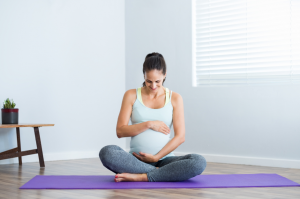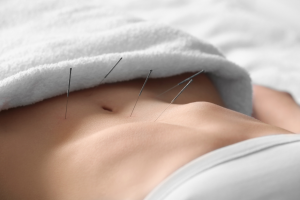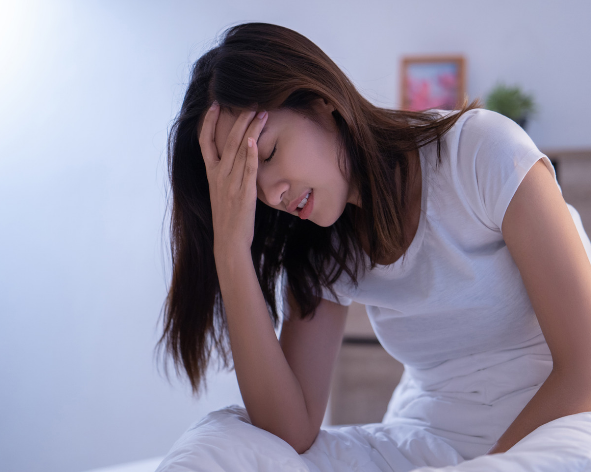As many as 26% of New Zealanders will experience infertility during their lifetime. Infertility is defined as a lack of conception after 12 months of unprotected intercourse, or difficulties retaining a pregnancy. If you and your partner are struggling to have a baby, you’re not alone. We’ve helped hundreds of couples face the same challenge.
When to do further examination?
For women, if you —
- Are age 35 or older and have tried to conceive for six months or longer.
- Are over age 40.
- Have no periods, or irregular or very painful periods.
- Have known fertility problems.
- Have endometriosis or a history of pelvic inflammatory disease.
- Have had more than one miscarriage.
- Have gotten cancer treatment such as chemotherapy or radiation.
For men, if you have —
- A low number of sperm or other problems with sperm.
- A history of testicular, prostate, or sexual conditions.
- Had treatment for cancer such as chemotherapy.
- Had hernia surgery.
- Testicles that are smaller than the typical adult size, or swollen veins in the bag of skin that holds the testicles, are called the scrotum.
- Had infertility with a partner in the past.
- Relatives with infertility problems.
Infertility may happen because of a health issue with either you or your partner, or a mix of factors that prevent pregnancy. However many safe and effective treatments can boost your chances of getting pregnant.
It sounds boring but it is important – Lifestyle
Lifestyle improvement including optimizing weight; exercising moderately and regularly; eliminating smoking, and drugs, and minimizing toxins, caffeine, and alcohol can help the chance of conception. Natural treatments such as acupuncture and herbal medicine can help depending on individual cases.
Tobacco use. Smoking tobacco by either partner may lower the chances of pregnancy. It also can make fertility treatments less effective. The risk of miscarriages may rise in women who smoke tobacco. When a pregnant person’s partner smokes, that also raises the risk of miscarriage — even when the pregnant person is not a smoker. Smoking can reduce the quality of eggs in women and has also been connected to early menopause. In men, there is a link between smoking and poorer quality semen or damaged sperm. And it can also raise the risk of erectile dysfunction.
Marijuana use. Marijuana may affect fertility, but more research is needed. Use during pregnancy has been linked with negative health effects on unborn babies. It also might raise the risk of miscarriage and stillbirth.
Alcohol consumption. For women, there is no safe level of alcohol use when you’re trying to get pregnant or during pregnancy. Alcohol may contribute to infertility. For men, heavy drinking can lower sperm count and affect how well sperm move.
Being overweight. An inactive lifestyle and being overweight or obese can raise the risk of infertility. Obesity is linked with lower quality of semen, the fluid that contains sperm.
Being underweight. People at risk of fertility problems include those with eating disorders, such as anorexia or bulimia. Those who follow a very low-calorie or restrictive diet also are at risk.
Lifestyle Improvement for Fertility

Exercise: Lack of exercise can lead to obesity and increase infertility risk. Conversely, excessive strenuous exercise in women who are not overweight may also cause ovulation problems.
Diet: A balanced diet with vegetables, whole grains, and fruit supports fertility. Reduce caffeine and eat fish for omega-3s. Avoid junk food, ultra-processed foods, and icy cold drinks.
Sleeping: Sleep regulates reproductive hormones like luteinizing hormone (LH), which triggers ovulation. Chronic sleep deprivation can disrupt LH release, leading to menstrual irregularities and potentially longer conception times.
Check Your Environment: Regular exposure to pesticides, chemicals, or x-rays can affect fertility. If you have concerns, consider making adjustments to your environment.
Relax: Manage stress and stay positive. Activities like exercise, yoga, meditation, or acupuncture can significantly benefit your fertility health.
Although trying for a baby can be a stressful and emotional time, these small adjustments to your lifestyle can prove hugely beneficial to your reproductive as well as general health. By putting into practice the advice for a healthy lifestyle, you will optimize your chances of conception, so putting the best foot forward as you start your fertility journey.
If you maintain a balanced diet, there is no need to take pregnancy multivitamins. However, we do recommend taking folic acid per day, and it’s worth checking with your GP whether you have sufficient levels of Vitamin D.
Acupuncture and Chinese Herbal Medicine for Fertility
Acupuncture and Chinese herbal medicine are widely used for fertility, combined with modern approaches to support individuals or couples in their journey toward conception. It is a holistic method of addressing fertility challenges.
What does it do?
Holistic Approach: The integration of acupuncture and Chinese medicine into fertility care implies a holistic perspective that considers not only reproductive health but also the overall balance of the body and mind.
Qi Flow and Balance: Traditional Chinese medicine views the body as an interconnected system where the smooth flow of Qi is crucial for health. Acupuncture is believed to help restore balance and promote optimal Qi flow, which can positively impact fertility.
Regulation of Menstrual Cycles: Acupuncture and herbal medicine is often used to regulate hormone levels, and menstrual cycles and address irregularities. By doing so, it may contribute to creating a more favorable environment for conception.
Stress Reduction: Acupuncture is known for its stress-reducing effects. Stress can have a significant impact on fertility, and acupuncture can help alleviate stress and create a more relaxed state conducive to conception.
Male Fertility Support: The integration of acupuncture in fertility care extends to male partners as well. Some studies suggest that acupuncture may have positive effects on sperm quality and quantity.
Integration with Western Medicine: In vitro fertilization (IVF), intrauterine insemination (IUI), and IVF with intracytoplasmic sperm injection (ICSI) are examples of traditional Western reproductive treatments that can be used with acupuncture and herbal medicine.
How many sessions for fertility?
The number of acupuncture and Chinese medicine sessions for fertility can vary based on individual circumstances, the specific fertility issues involved, and treatment goals. Our acupuncturists provide their professional opinions on each person’s unique situation. Here are some general guidelines:
Frequency of Sessions: Initially, acupuncturists might recommend one or two sessions per week, especially during specific phases of the menstrual cycle. Closer to ovulation, more frequent sessions may be suggested to optimize the chances of conception.
Result of Treatment: Some individuals may experience positive results after a few weeks of regular sessions, while others may continue for months. Acupuncture may be advised prior to and during assisted reproductive technologies (ART) operations, such as in vitro fertilization (IVF).
Preconception Period: Some individuals may choose to undergo acupuncture for several months before actively trying to conceive. This period allows for addressing underlying health issues, reducing stress, balancing hormones, and optimizing overall well-being.
What not to do after fertility acupuncture and Chinese medicine?
After fertility acupuncture and Chinese medicine sessions, it’s generally recommended to be mindful of certain activities to optimize the benefits of the treatment. While individual responses may vary, here are some common suggestions on what not to do after fertility acupuncture and Chinese medicine:
Avoid Strenuous Exercise: Refrain from engaging in intense or strenuous physical activities immediately after the session. Give your body some time to rest and recover.
Minimize Stressful Situations: Try to avoid stressful situations or activities. Acupuncture aims to promote relaxation, and exposing yourself to stress immediately afterward may counteract the calming effects.
Limit Caffeine and Alcohol: Refrain from consuming caffeine and alcohol after the session. These substances may interfere with the calming effects of the treatment.
Avoid Overeating: While it’s important not to skip meals, try not to overeat after acupuncture. A moderate and balanced meal is generally recommended.
Refrain from Sexual Activity: We may recommend avoiding sexual activity immediately after a fertility acupuncture session. This recommendation may vary, so it’s essential to discuss it with one of our acupuncturists.
Limit Exposure to Extreme Weather: Exposure to extreme weather conditions, whether hot or cold, after acupuncture may impact the balance achieved during the session. Dress appropriately for the weather.
Minimize Screen Time: Try to sleep early. Limit exposure to screens and electronic devices, especially in the evening after an acupuncture session. This can support a restful night’s sleep.
I’d like to try this therapy, Where can I go?

It’s important to choose a licensed and experienced acupuncturist who specializes in reproductive health. Always inform your acupuncturist about any ongoing medical treatments or medications. Acupuncture is generally considered safe, but it’s crucial to ensure that it complements your overall fertility plan.
At Happipuncture, we’ve helped hundreds of couples become parents. No matter what fertility challenges you’re facing, Fertility Acupuncture and Chinese Medicine can be significantly helpful. If you are interested in having our professional team naturally assist you, contact us at 09-2182992.
We help New Zealanders improve their health, and be young in natural, holistic ways. We enjoy helping you feel better, and be better both physically and mentally.
To get in touch, visit this page or call 09-2182992.
Embrace the joys of parenthood, let’s make it happen together at Happipuncture.




